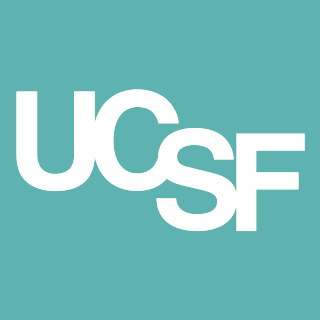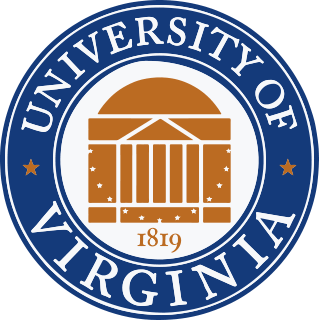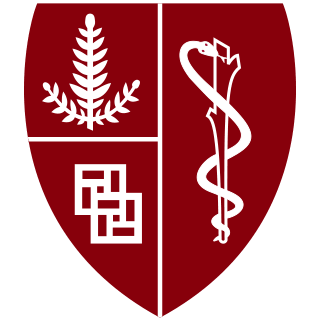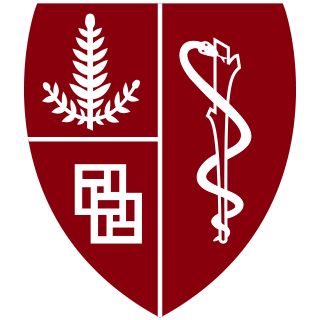Attending Neurologist/San Francisco General Hospital
Neurology
Dr. Robert O. Messing, MD
Robert Messing is an expert in the field of Neurology. He graduated from Stanford University School of Medicine. Stanford University School of Medicine is a top medical college. Stanford University School of Medicine has a rank of 2 in research and a 25 in primary care He over the years received 22 awards: "Henry M. Burlage Centennial Professor of Pharmacy", "Bowles Lectureship Award", "Alberta Heritage Foundation for Medical Research Visiting Lecturer Award", "UCSF Medical Student Nominee for AOA Faculty Membership", "Alberta Heritage Foundation for Medical Research, Visiting Lecturer Award", "Nominee, Kaiser Awards for Excellence in Teaching", "Endowed Chair in Neurology in Honor of the Gallo Family", "Visiting Professor, Dept. of Neuroscience and Physiology", "Endowed Chair in Neurology in Honor of the Gallo", "Merit Award", "Visiting Professor, Dept. of Physiology and Neuroscience", "Visiting Professor, Bowles Center for Alcohol Studies", "Method to Extend Research in Time (MERIT) Award", "Visiting Professor, Dept. of Pharmacology", "Visiting Professor, Institute for Cellular and Molecular Biology", "Robert B. Layzer "Golden Toe" Award for Outstanding Neurology Resident Teaching", "Basil O'Connor Starter Scholar Research Award", "Clinical Investigator Development Award", "Sandoz Award for Outstanding Neurology Resident", "National Research Service Award", "Honors in History" and "Phi Beta Kappa". Robert Messing is a published physician as well. He has 101 publications published. The latest was: Protein kinase A regulates regulates inhibition of N- and P/Q-type calcium channels by ethanol in PC12 cells.
Publications
- Binge Drinking With Protein Kinase C Epsilon: A Role for Mammalian Target of Rapamycin Complex 2?
- D-Serine and D-Cycloserine Reduce Compulsive Alcohol Intake in Rats.
- Generation and characterization of ATP analog-specific protein kinase Cδ.
- Alcohol dependence: molecular and behavioral evidence.
- Deletion of Prkcz Increases Intermittent Ethanol Consumption in Mice.
- Cortical activation of accumbens hyperpolarization-active NMDARs mediates aversion-resistant alcohol intake.
- Prkcz null mice show normal learning and memory.
- Structural and functional characterization of an anesthetic binding site in the second cysteine-rich domain of protein kinase C?*.
- SEB-3, a CRF receptor-like GPCR, regulates locomotor activity states, stress responses, and ethanol tolerance in C. elegans.
- The anticonvulsant levetiracetam potentiates alcohol consumption in non-treatment seeking alcohol abusers.
- Protein kinase C epsilon modulates nicotine consumption and dopamine reward signals in the nucleus accumbens.
- Signaling Pathways Mediating Alcohol Effects.
- Inhibition of PKCδ reduces cisplatin-induced nephrotoxicity without blocking chemotherapeutic efficacy in mouse models of cancer.
- Mouse model of middle Cerebral artery occlusion.
- GABAA receptor trafficking is regulated by protein kinase C(epsilon) and the N-ethylmaleimide-sensitive factor.
- PKC-delta promotes renal tubular cell apoptosis associated with proteinuria.
- Status report: the Annals in 2010.
- Neurobiological mechanisms contributing to alcohol-stress-anxiety interactions.
- PKCepsilon regulates behavioral sensitivity, binding and tolerance to the CB1 receptor agonist WIN55,212-2.
- The role of the equilibrative nucleoside transporter 1 (ENT1) in transport and metabolism of ribavirin by human and wild-type or Ent1-/- mouse erythrocytes.
- The N-type calcium channel is a novel target for treating alcohol use disorders.
- Protein kinase Cdelta regulates ethanol intoxication and enhancement of GABA-stimulated tonic current.
- A blocker of N- and T-type voltage-gated calcium channels attenuates ethanol-induced intoxication, place preference, self-administration, and reinstatement.
- Protein kinases and addiction.
- Hypertensive encephalopathy and the blood-brain barrier: is deltaPKC a gatekeeper?
- Protein kinase C epsilon regulates gamma-aminobutyrate type A receptor sensitivity to ethanol and benzodiazepines through phosphorylation of gamma2 subunits.
- nPKCepsilon, a P2Y2-R downstream effector in regulated mucin secretion from airway goblet cells.
- A semisynthetic epitope for kinase substrates.
- Early editorial manuscript screening versus obligate peer review: a randomized trial.
- Acute functional tolerance to ethanol mediated by protein kinase Cepsilon.
- PKCepsilon increases endothelin converting enzyme activity and reduces amyloid plaque pathology in transgenic mice.
- Role of the protein kinase C-epsilon-Raf-1-MEK-1/2-p44/42 MAPK signaling cascade in the activation of signal transducers and activators of transcription 1 and 3 and in...
- Protein kinase C isozymes in Stroke.
- The mGluR5 antagonist 6-methyl-2-(phenylethynyl)pyridine decreases ethanol consumption via a protein kinase C epsilon-dependent mechanism.
- Specific modulation of Na+ channels in hippocampal neurons by protein kinase C epsilon.
- Deletion of N-type calcium channels alters ethanol reward and reduces ethanol consumption in mice.
- The type 1 equilibrative nucleoside transporter regulates ethanol intoxication and preference.
- Neutrophil protein kinase Cdelta as a mediator of Stroke-reperfusion injury.
- Protein kinase C isozymes and addiction.
- Preservation of base-line hemodynamic function and loss of inducible cardioprotection in adult mice lacking protein kinase C epsilon.
- The mouse RACK1 gene is regulated by nuclear factor-kappa B and contributes to cell survival.
- Protein kinase C-epsilon-null mice have decreased hypoxic pulmonary vasoconstriction.
- Animal models in the study of protein kinase C isozymes.
- Genetic approaches to studying protein kinase C: an introduction.
- Conditional rescue of protein kinase C epsilon regulates ethanol preference and hypnotic sensitivity in adult mice.
- Decreased anxiety-like behavior, reduced stress hormones, and neurosteroid supersensitivity in mice lacking protein kinase Cepsilon.
- Cardioprotection mediated by sphingosine-1-phosphate and ganglioside GM-1 in wild-type and PKC epsilon knockout mouse hearts.
- Should the reorganization of addiction-related research across all the National Institutes of Health be structural?--The devil is truly in the details.
- How Should Addiction-Related Research at the National Institutes of Health be Reorganized?
- The substrates and binding partners of protein kinase Cepsilon.
- The identification and characterization of novel PKCepsilon phosphorylation sites provide evidence for functional cross-talk within the PKC superfamily.
- Chronic ethanol exposure induces an N-type calcium channel splice variant with altered channel kinetics.
- Alcohol-induced stress in painful alcoholic neuropathy.
- Ethanol withdrawal induces hyperalgesia mediated by PKCepsilon.
- Neurotoxic catecholamine metabolite in nociceptors contributes to painful peripheral neuropathy.
- Increased response to morphine in mice lacking protein kinase C epsilon.
- Severity of alcohol-induced painful peripheral neuropathy in female rats: role of estrogen and protein kinase (A and Cepsilon).
- The type 1 equilibrative nucleoside transporter regulates anxiety-like behavior in mice.
- Increased sensitivity to the aversive effects of ethanol in PKCepsilon null mice revealed by place conditioning.
- Divergent contractile and structural responses of the murine protein kinase C-epsilon null pulmonary circulation to chronic hypoxia.
- Amygdala protein kinase C epsilon regulates corticotropin-releasing factor and anxiety-like behavior.
- Amygdala protein kinase C epsilon controls alcohol consumption.
- Divergent contractile and structural responses of the murine PKC-epsilon null pulmonary circulation to chronic hypoxia.
- Intracellular signaling pathways that regulate behavioral responses to ethanol.
- Seizures as a manifestation of systemic disease.
- Ethanol differentially enhances hippocampal GABA A receptor-mediated responses in protein kinase C gamma (PKC gamma) and PKC epsilon null mice.
- Protein kinase C regulation of GABAA receptors.
- Ethanol enhances growth factor-induced neurite formation in PC12 cells.
- Chronic ethanol exposure increases levels of protein kinase C delta and epsilon and protein kinase C-mediated phosphorylation in cultured neural cells.
- Protein kinase C participates in up-regulation of dihydropyridine-sensitive calcium channels by ethanol.
- Mechanism of calcium channel inhibition by phenytoin: comparison with classical calcium channel antagonists.
- Inactivation of 45Ca2+ uptake by prior depolarization of PC12 cells.
- Ethanol regulates calcium channels in clonal neural cells.
- Depolarization-dependent binding of the calcium channel antagonist, (+)-[3H]PN200-110, to intact cultured PC12 cells.
- Lectin-induced enhancement of voltage-dependent calcium flux and calcium channel antagonist binding.
- Interaction of calmodulin inhibitors and protein kinase C inhibitors with voltage-dependent calcium channels.
- Ethanol-induced component of 45Ca2+ uptake in PC12 cells is sensitive to Ca2+ channel modulating drugs.
- Comparative effects of chronic exposure to ethanol and calcium channel antagonists on calcium channel antagonist receptors in cultured neural (PC12) cells.
- Nicotinic and muscarinic agonists stimulate rapid protein kinase C translocation in PC12 cells.
- Calcium channel antagonist receptors in Cerebral cortex from alcoholic patients.
- Early CT reevaluation after empiric praziquantel therapy in neurocysticercosis.
- Inhibition of calcium flux and calcium channel antagonist binding in the PC12 neural cell line by phorbol esters and protein kinase C.
- Calcium channel antagonist properties of the antineoplastic antiestrogen tamoxifen in the PC12 neurosecretory cell line.
- Immunological studies in patients with acquired immune deficiency syndrome.
- Agitated confusional states in patients with right hemisphere infarctions.
- Drug-induced seizures: a 10-year experience.
- Ethanol enhances growth factor activation of mitogen-activated protein kinases by a protein kinase C-dependent mechanism.
- Depolarization-induced neurite outgrowth in PC12 cells requires permissive, low level NGF receptor stimulation and activation of calcium/calmodulin-dependent protein k...
- Ethanol as an enhancer of neural differentiation.
- Somatostatin enhances nerve growth factor-induced neurite outgrowth in PC12 cells.
- Neurologic effects of alcoholism.
- Protein kinase C and adaptation to ethanol.
- Protein kinase C isozymes that mediate enhancement of neurite outgrowth by ethanol and phorbol esters in PC12 cells.
- Neurological reactions in HIV-infected patients treated with trichosanthin.
- The phorbol derivatives thymeleatoxin and 12-deoxyphorbol-13-O-phenylacetate-10-acetate cause translocation and down-regulation of multiple protein kinase C isozymes.
- Cerebral aneurysm presenting as cough headache.
- Overexpression of epsilon-protein kinase C enhances nerve growth factor-induced phosphorylation of mitogen-activated protein kinases and neurite outgrowth.
- Protein kinase C inhibits adenylyl cyclase type VI activity during desensitization of the A2a-adenosine receptor-mediated cAMP response.
- An inhibitory fragment derived from protein kinase Cepsilon prevents enhancement of nerve growth factor responses by ethanol and phorbol esters.
- Protein kinase A regulates regulates inhibition of N- and P/Q-type calcium channels by ethanol in PC12 cells.
Schools
Stanford University
University Of Virginia Hospital
Uc San Francisco Med Center
Conditions Treated
- Cerebral Artery Thrombosis
- Convulsions
- Dementia
- Migraine
- View All
Doctors Specialties
- Neurology
Accepted Insurances
Awards
- Henry M. Burlage Centennial Professor of Pharmacy
- Bowles Lectureship Award
- Alberta Heritage Foundation for Medical Research Visiting Lecturer Award
- UCSF Medical Student Nominee for AOA Faculty Membership
- Alberta Heritage Foundation for Medical Research, Visiting Lecturer Award
- Nominee, Kaiser Awards for Excellence in Teaching
- Endowed Chair in Neurology in Honor of the Gallo Family
- Visiting Professor, Dept. of Neuroscience and Physiology
- Endowed Chair in Neurology in Honor of the Gallo
- Merit Award
- Visiting Professor, Dept. of Physiology and Neuroscience
- Visiting Professor, Bowles Center for Alcohol Studies
- Method to Extend Research in Time (MERIT) Award
- Visiting Professor, Dept. of Pharmacology
- Visiting Professor, Institute for Cellular and Molecular Biology
- Robert B. Layzer "Golden Toe" Award for Outstanding Neurology Resident Teaching
- Basil O'Connor Starter Scholar Research Award
- Clinical Investigator Development Award
- Sandoz Award for Outstanding Neurology Resident
- National Research Service Award
- Honors in History
- Phi Beta Kappa
Education
-
 University of California at San Francisco
University of California at San Francisco -
 UCSF
UCSF -
 University of Virginia
University of Virginia -
 Stanford University School of Medicine
Stanford University School of Medicine -
 Stanford University
Stanford University
Helpful Reviews
Similar Doctors

|
Dr. Bruce M. McCormack, MD
 This Doctor is OpenDoctor Recommended. This Doctor is OpenDoctor Recommended.
|

|
Dr. Michael C. Rowbotham, MD
 This Doctor is OpenDoctor Recommended. This Doctor is OpenDoctor Recommended.
|

|
Dr. Ari J. Green, MD
 This Doctor is OpenDoctor Recommended. This Doctor is OpenDoctor Recommended.
|

|
Dr. Jonathan Mueller, MD |

|
Dr. Edward F. Eyster, MD
 This Doctor is OpenDoctor Recommended. This Doctor is OpenDoctor Recommended.
|

|
Dr. Elan L. Guterman, MD |

|
Dr. Ethan G. Brown, MD |

|
Dr. Jennifer L. Clarke, MD |

|
Dr. Jennifer Dwyer, MD
 This Doctor is OpenDoctor Recommended. This Doctor is OpenDoctor Recommended.
|

|
Dr. Joanna M. Hellmuth, MD |

|
Dr. Erik C. Johnson, MD |

|
Dr. Sun Kim, MD |

|
Dr. Neil Maluste, MD |

|
Dr. Amy R. Tso, MD |